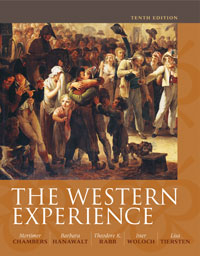1 A) concentrated on developing peaceful trade relations around the Aegean Sea. B) returned to its perennial isolation. C) gradually transformed the Delian League into an empire. D) turned on Sparta to secure its primacy in the Greek world. E) withdrew from the Delian League and established a new Greek alliance. 2 A) he secured Athens' dominance of the Greek world. B) he sponsored construction of the greatest Greek temple, the Parthenon. C) he dominated Athens through its democratic institutions. D) he never held high civil office. E) he was beloved by the common people of the city. 3 A) careful planning and meticulous execution by cautious professionals. B) rash actions advocated by demagogues, supported by popular enthusiasm. C) scrupulous regard for the rights of neutral powers. D) a steadfast refusal to make even temporary truces with the enemy. E) lightning attacks on Spartan defensive positions. 4 A) Athens emerged as the undisputed leader of Greece. B) Sparta's victory propelled it to lasting domination of Greece. C) the war left Greece exhausted and demoralized. D) Persia was able to take advantage of Greek divisions to complete its conquest. E) Sparta was hopelessly weakened and ceased to play a role in Greek politics. 5 A) the gods' behavior is rational and can therefore be understood through reason. B) the universe and humans' place within it can only be understood through revelation. C) numbers are the key to understanding the structure of the universe. D) there is an order in the universe that humans can discover through reason. E) the gods were mythological characters whose adventures taught lessons about living an ethical life. 6 A) the proper relationship between humans and the gods. B) how a person should conduct him or herself in the world. C) the ideal constitution for a state. D) the fundamental composition of the universe. E) the role of self-governance in Greek society. 7 A) led to his trial and death sentence in Athens. B) presaged the discovery of mathematical relationships within all things. C) enabled him to create some of the most beautiful harmonies in musical history. D) were based on experiments by contemporary Greek physicists. E) were seen as heresy by the priestly caste. 8 A) how to achieve success in life. B) how to discover moral absolutes. C) to support revealed truths through reason. D) how to achieve happiness by renouncing the world. E) that mathematics was the secret to discovering the laws of the universe. 9 A) proving that knowledge inevitably leads to morally right choices. B) educating elitists who betrayed Athens during its struggle against Sparta. C) pursuing moral truths through a process of questioning and logical analysis. D) showing that the truly virtuous person need not fear death. E) demonstrating that there was political gain in corrupting the youth 10 A) a reflection of the eternal forms that constitute true reality. B) the only aspect of reality that is truly knowable. C) composed of water, echoing Babylonian myths of a primeval flood. D) an illusion caused by the play of shadows on the wall of a cave. E) representative of mathematical precision. 11 A) taught students about his philosophy. B) developed an explicit philosophy of government. C) focused on understanding the material world. D) regarded reason as the ultimate weapon of gaining knowledge. E) embraced the ideas and rhetorical strategies of the Sophists. 12 A) pure entertainments. B) allegories to the past greatness of Athens. C) warm explorations of love and sexuality. D) covert defenses of the status quo in Greek society. E) social and political satires. 13 A) objective investigation into the causes of events. B) reliance on older sources from the Near East. C) partisan point of view. D) focus on the economic structures underlying political events. E) fatalism about the trajectory of Athenian society in the past and present. 14 A) natural disasters. B) economic depression. C) internal subversion. D) Persian subversion. E) chronic warfare. 15 A) careful diplomacy. B) a powerful army. C) well-timed leniency. D) charismatic leadership. E) economic pressure. 16 A) extended Greek rule over the entire civilized world between Greece and India. B) created a lasting, unified empire fusing Greek, Persian, and Indian influences. C) founded the city of Alexandria as a link between Egypt and Greece. D) liberated the peoples of the Persian empire and returned them to self-government. E) resurrected the military prowess of ancient Sparta. 17 A) Greek rulers. B) strong armies. C) large bureaucracies. D) the rise of the wealthy classes. E) democratic governments. 18 A) the scale of economic activity was far greater than before. B) agriculture ceased to be the dominant activity. C) long-distance trade grew enormously. D) economic development supported the growth of magnificent cities. E) vast estates tended to predominate in the agricultural sector. 19 A) we should act in accordance with nature and reason in order to lead a virtuous life. B) we should concern ourselves with leading pleasurable lives, avoiding physical and mental pain. C) because life is transitory, we should seek the maximum possible stimulation in the time we have. D) because life is transitory, we should make what contribution we can while we have the time. E) we should embrace the moral code of the ancients as a guide for living better lives. 20 A) worship of a savior whose death and resurrection would redeem the sins of humanity. B) elaborate, secret, and often wildly emotional rituals. C) sophisticated theologies combining revealed truths with philosophical rationalization. D) the promise of an afterlife to compensate for the rigors of life in the world. E) escapism for those struggling and suffering in daily life.





